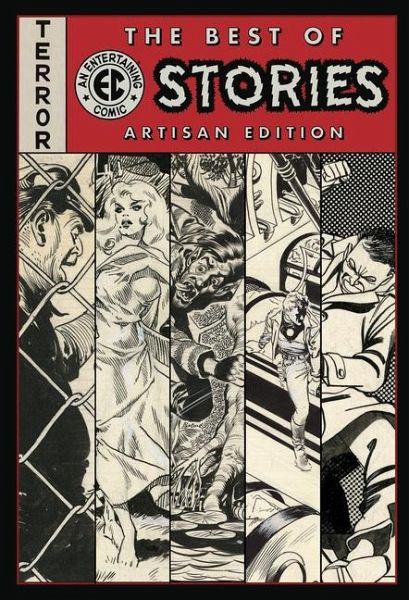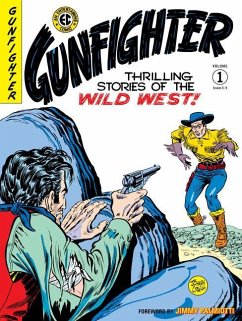The Best of EC Stories Artisan Edition
Versandkostenfrei!
Versandfertig in 2-4 Wochen

PAYBACK Punkte
22 °P sammeln!




Contains material originally published in magazine form in the late 1940s and early 1950s.
Wally Wood (1927—1981) was born on June 17th, 1927, in Menahga, MN. After briefly attending the Minneapolis School of Art, Wood moved to New York, where he studied for a short time at the Cartoonists and Illustrators School (later renamed the School of Visual Arts). Soon after arriving in New York, Wood began to find comics work with several small publishers before arriving at Avon Comics and EC Comics. It was at EC that he truly shone. In a lineup crammed with heavyweights, Wood distinguished himself as one of the absolute best. Wood, while still at EC, was one of the founding artists on MAD comics, where he continued to work after it became MAD Magazine. In the late 1950s, Wood produced many science-fiction covers and interiors for Galaxy magazine, illustrating such classic authors as Isaac Asimov, Philip K. Dick, Frederick Pohl, and many others. In the 1960s, Wood enjoyed great demand, and worked for Marvel Comics and Warren Publishing, and co-created The T.H.U.N.D.E.R. Agents at Tower Comics. Additionally, he produced two weekly comic strips, Cannon and Sally Forth, for Military News and Overseas Weekly, as well as self-publishing the groundbreaking pro-zine, Witzend. Wood continued to produce work in the 1970s but towards the end of the decade suffered from kidney failure and a stroke, the latter leading to vision loss in one eye. On November 2nd, 1981, after years of ill health, Wally Wood took his own life.
Produktdetails
- Artist's Editions
- Verlag: Idea & Design Works
- Seitenzahl: 200
- Erscheinungstermin: 27. September 2022
- Englisch
- Abmessung: 303mm x 207mm x 19mm
- Gewicht: 1024g
- ISBN-13: 9781684059270
- ISBN-10: 1684059275
- Artikelnr.: 63663902
Herstellerkennzeichnung
Libri GmbH
Europaallee 1
36244 Bad Hersfeld
gpsr@libri.de
Für dieses Produkt wurde noch keine Bewertung abgegeben. Wir würden uns sehr freuen, wenn du die erste Bewertung schreibst!
Eine Bewertung schreiben
Eine Bewertung schreiben
Andere Kunden interessierten sich für













